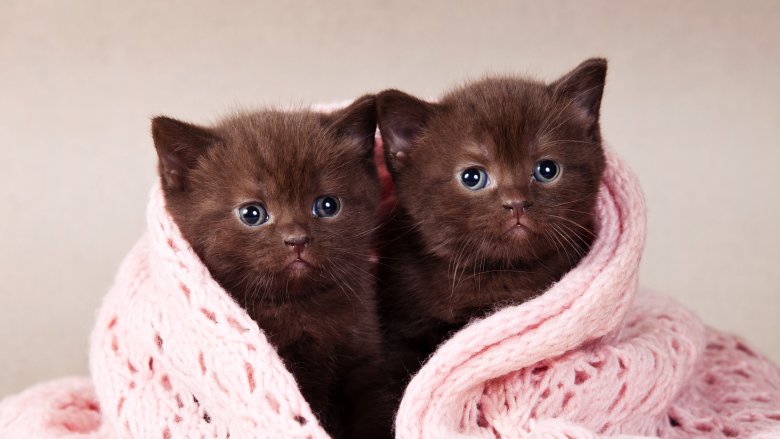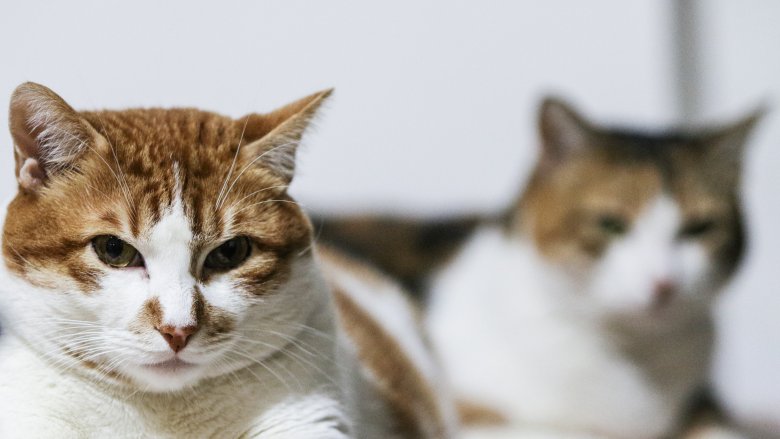How Much Does It Cost To Clone A Cat?
Cats: they're furry, they're occasionally cuddly, and not unlike your last few significant others, they show their affection by leaving dead animals on your porch. Through thousands of years of selective breeding, we have bent nature's will and created the perfect pet for people who like being passive aggressively ignored. What's more, when they're born, they tend to come in about a six pack, so there's no shortage of the little allergy grenades.
But what if you don't want just any cat? What if you want the same cat you already have, genetically speaking? What if, through science, you could double or even triple the nine lives your kitten was assigned at birth?
With the help of modern science and a heaping scoop of "why not" attitude, you can have your fur ball reproduced in a lab like a stormtrooper or Ariana Grande. Aside from issues of morality, the major stumbling block that most people will come across is the price tag: ViaGen, the go-to company for creating your lovable army of genetically identical pets, charges a cool $35,000 for the cloning procedure.
Why cloning your pet is probably not a good idea
Try not to think of that as the price of a new mid-range car (or, more aptly, how much it would cost to rescue 250 shelter cats from your local pound, helping to ease the burden on a vastly overstretched animal rescue system). Instead, picture the investment as a head start on all of the damage deposits you're never going to get back now that your cat is going to live forever.
To be clear, pets are special, and as they reach the ends of their lives, anyone promising to potentially extend our time with them is going to naturally draw our attention. But, and this is important, cloning a pet doesn't mean that you get the same animal all over again. A genetic copy won't have the same demeanor or even necessarily look exactly like its progenitor, according to veterinarian Dr. Katy Nelson, who also brings up a number of ethical issues with the treatment of the surrogate parents used to gestate cloned specimens. So before you blow your inheritance on Mr. Wubblykins 2.0, consider the more reasonable, economical route of adoption.

